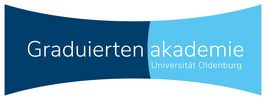Programme Manager
6 Mentoring
The University of Oldenburg explicitly understands its mentoring programmes as an important aspect of academic personnel development, which, at the same time, contribute to the development of the university as a whole. The university aims to create the best possible framework conditions to support early-career researchers in their personal and professional development and to promote their autonomy. Programmes targeted at specific groups, especially female researchers* [1], support the university's objective of advancing gender equality in science and academia and promoting diversity.
*This refers to all persons who define themselves as female researchers. This explicitly includes trans*, inter* and non-binary people who identify as female. Similarly, the term 'male researcher' is used with the same intent of inclusion for individuals who identify as male. The term ‘mentor’ also refers to all people who want to take on this task, regardless of their gender identity.
What is mentoring?
Mentoring is an individual career development measure which is defined by an individual partnership between the mentee and the mentor. Throughout the mentoring partnership, mentees are supported by a mentor, an individual that has progressed at least one step further in their academic career and can therefore pass on appropriate experience.
One-to-one mentoring is usually complemented by a supporting programme that prepares the mentees for their role and offers opportunities for networking and reflecting on the mentoring process. In addition, training workshops or lectures are usually offered that are specifically tailored to the needs of the mentees.
If necessary, individual coaching appointments can be booked by the mentees in most programmes to deal with individual questions related to mentoring and/or their current professional situation. These coaching sessions are usually carried out by the trainer of the supporting programme.
For mentors in UOL programmes, preparatory group coaching sessions are provided in some programmes. The programme coordinators are also available for individual consultation on request. In addition, the professional development/organizational development section offers workshops, training and coaching specifically for academic leadership.
Components of the mentoring programme
A mentoring programme usually consists of several components:
- One-to-one mentoring
- Career phase-specific training through workshops or lectures
- Networking opportunities
- Individual coaching
Ground rules for mentoring partnerships
Voluntary participation
The mentee and mentor participate in the programme voluntarily and at their own initiative.
Independence
There is no direct dependency relationship between mentee and mentor through direct or indirect employment or academic supervision of doctoral or postdoctoral research.
Defined period
The mentoring partnership is maintained over a set period of time, although it may be continued informally by individual agreement.
Personal contact
Personal contact between the mentor and the mentee is of great importance to successful mentoring from the beginning and during the mentoring partnership and can be supplemented by email correspondence, telephone or video calls.
Confidentiality
Mentoring meetings take place in a protected space and must be kept strictly confidential by the parties involved.
Commitment
Keeping appointments and agreements is an essential prerequisite for a successful mentoring partnership.
Expectations and agreement
At the beginning of the mentoring partnership, specific expectations and agreements on aims, contact arrangements, feedback and other important aspects should be communicated between the mentee and mentor and, if necessary, be recorded in writing.
Mentors
The role of mentor is taken by people who are at an advanced stage of their careers or who work in a field that is relevant to the mentee’s professional future.
It is the mentor’s task to support the mentee, especially in professional decision-making and during transitional phases, by passing on their experience and introducing mentees to their own professional networks. It is precisely the passing on of informal knowledge relevant to specific fields and networks that is of particular value to mentees.
Through their commitment, mentors also gain new experiences and successes in supporting early-career researchers. Exchanging experiences with mentees opens up insights into the current conditions for career development and new perspectives on the mentor’s own career. Mentors also strengthen their own consultation and leadership skills and demonstrate their commitment to early-career researchers in an exemplary manner.
Mentees
The success of the mentoring partnership is highly dependent on the mentees’ initiative. Mentees are responsible for seeking suitable mentors – with guidance – and ensuring that the mentoring partnership meets their professional development needs. Mentees are responsible for preparing topics and questions for mentoring meetings and for organizing meetings.
Mentees gain exclusive career advice tailored to their interests through mentoring. They can build contacts and networks that last beyond the duration of the mentoring programme. The accompanying training programme offers the opportunity to acquire additional knowledge and competences that are helpful for personal and professional development.
Mentoring guidelines
The mentoring guidelines provide advice for establishing the mentoring partnership and may serve as reference throughout the mentoring partnership.
A brief information sheet for mentors is also available in German or English.
An optional mentoring agreement in German or English is available for clarifying the formal aspects of the mentoring partnership.
Quality management
The University of Oldenburg is a member of Forum Mentoring. Bundesverband Mentoring in der Wissenschaft e.V. (German association for mentoring in science)
All mentoring programmes are supervised by coordinators and supported by professional coaches. Participation in the programme is subject to a structured application procedure. For mentors in UOL programmes, preparatory group coaching sessions are provided in some programmes. The programme coordinators are also available for individual consultation on request. In addition, the professional development/organizational development section offers workshops, training and coaching specifically for academic leadership.
Both the individual events of the monitoring programme and the programmes as a whole will be evaluated.
On the following pages, information is given on the current mentoring programmes of the University of Oldenburg for different target groups and conditions for participation. If you have any questions, please contact the programme coordinator.




